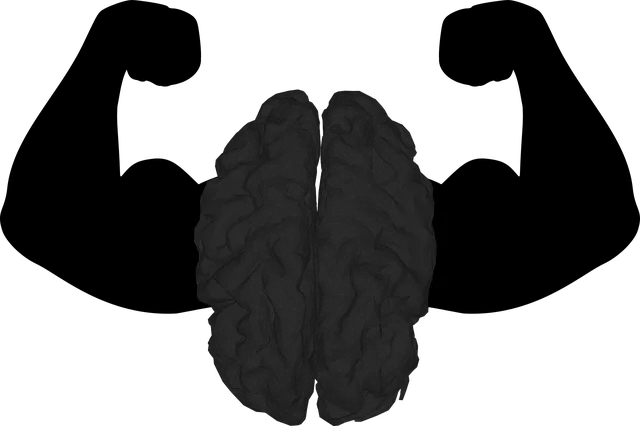Kaiser Permanente mental health Wheat Ridge offers personalized, accessible services, emphasizing open communication and empathy. A comprehensive mental wellness app, inspired by these services, should include mood tracking, mindfulness exercises, therapy sessions, social skills training, and self-care practices. Integrating evidence-based therapies like CBT and crisis intervention tools, along with cultural competency training for diverse user backgrounds, enhances the app's effectiveness in managing anxiety, depression, and promoting overall well-being. Intuitive UX design, personalized adaptive interfaces, and accessible features are key to its success.
“Explore the evolving landscape of mental wellness app development, with a focus on Kaiser Permanente’s services in Wheat Ridge. This article delves into the critical components shaping effective digital mental health solutions. From understanding established services at Kaiser Permanente to identifying essential app features and integrating evidence-based therapies, we navigate key aspects. Additionally, user experience design considerations are explored, emphasizing the importance of creating intuitive, therapeutic tools accessible in Wheat Ridge and beyond.”
- Understanding Kaiser Permanente's Mental Health Services in Wheat Ridge
- Identifying Key Features for Effective Mental Wellness Apps
- Integrating Evidence-Based Therapies and Tools
- User Experience Design Considerations for Mental Health Apps
Understanding Kaiser Permanente's Mental Health Services in Wheat Ridge

Kaiser Permanente offers a comprehensive range of mental health services in Wheat Ridge, catering to diverse emotional needs. Their approach focuses on evidence-based practices and personalized care, ensuring individuals receive the support tailored to their unique circumstances. The organization recognizes the importance of accessible and affordable mental wellness solutions, making these services available to a wide range of people.
Through various programs, Kaiser Permanente aids in navigating complex emotions, promoting emotional healing processes, and implementing empathy building strategies. They facilitate open communication, providing safe spaces for individuals to express their feelings and concerns. By combining professional expertise with compassionate care, these services aim to empower users to manage stress, anxiety, and other mental health challenges effectively, fostering better overall well-being.
Identifying Key Features for Effective Mental Wellness Apps

When developing a mental wellness app, identifying key features that cater to diverse user needs is paramount. Apps like those offered by Kaiser Permanente mental health Wheat Ridge should balance accessibility with personalization. Incorporating functionalities such as mood tracking, mindfulness exercises, and accessible therapy sessions can significantly enhance user engagement. Additionally, integrating features for Social Skills Training and Self-Care Practices not only enriches the app’s capabilities but also empowers users to actively manage their mental well-being.
Moreover, ensuring cultural competency within the app is crucial. Healthcare Provider Cultural Competency Training should inform the development process, enabling the app to cater to a broad spectrum of users with varying cultural backgrounds and preferences. This inclusivity not only improves user experience but also ensures that the app’s offerings remain relevant and effective for all individuals seeking mental wellness support.
Integrating Evidence-Based Therapies and Tools

Integrating evidence-based therapies and tools is a key aspect of developing effective mental wellness apps, especially when considering models like those employed by Kaiser Permanente mental health Wheat Ridge. These apps should incorporate scientifically validated techniques to ensure their efficacy in supporting users’ mental well-being. For instance, Cognitive Behavioral Therapy (CBT) has been shown to be highly effective for managing anxiety and depression, enabling users to identify and change negative thought patterns. Similarly, tools such as mindfulness exercises, meditation practices, and positive affirmation routines have strong backing in promoting mental health and can be integrated into app features.
Furthermore, apps can provide Crisis Intervention Guidance, helping users navigate stressful situations through immediate access to coping strategies and support resources. They can also facilitate Self-Care Routine Development for Better Mental Health by offering personalized schedules and reminders for activities like exercise, adequate sleep, and social interactions—crucial elements in preventing Burnout. By leveraging these evidence-based approaches, mental wellness apps can become powerful tools in empowering individuals to take control of their mental health and well-being.
User Experience Design Considerations for Mental Health Apps

The user experience (UX) design of mental health apps plays a pivotal role in their success and impact on users’ well-being. When developing applications focused on mental wellness, such as those aimed at Kaiser Permanente members in Wheat Ridge, it’s crucial to prioritize intuitive navigation and accessible features. Users often seek support during vulnerable moments, so a well-designed interface can significantly enhance engagement and effectiveness. Incorporating simple, clear messaging and easily understandable language ensures that individuals from diverse backgrounds can benefit from the app.
Effective UX for mental health apps should facilitate personalized experiences. This can be achieved through adaptive interfaces that adjust to users’ needs over time, offering tailored guidance, like Mental Wellness Journaling Exercise, based on their progress and reported moods. Additionally, integrating Crisis Intervention Guidance within the app ensures users have immediate access to critical support when facing severe distress. Moreover, considering the Risk Assessment for Mental Health Professionals allows for early detection of potential risks, enabling prompt interventions by qualified experts.
The development of mental wellness apps, such as those offered by Kaiser Permanente in Wheat Ridge, presents a promising avenue for enhancing access to mental health services. By integrating evidence-based therapies and tools, prioritizing user experience design, and understanding the unique needs of users, these apps have the potential to revolutionize mental healthcare. As technology continues to evolve, it is crucial to focus on creating intuitive, personalized, and effective digital solutions that complement traditional therapy methods, ultimately improving overall mental wellness for individuals seeking support.






